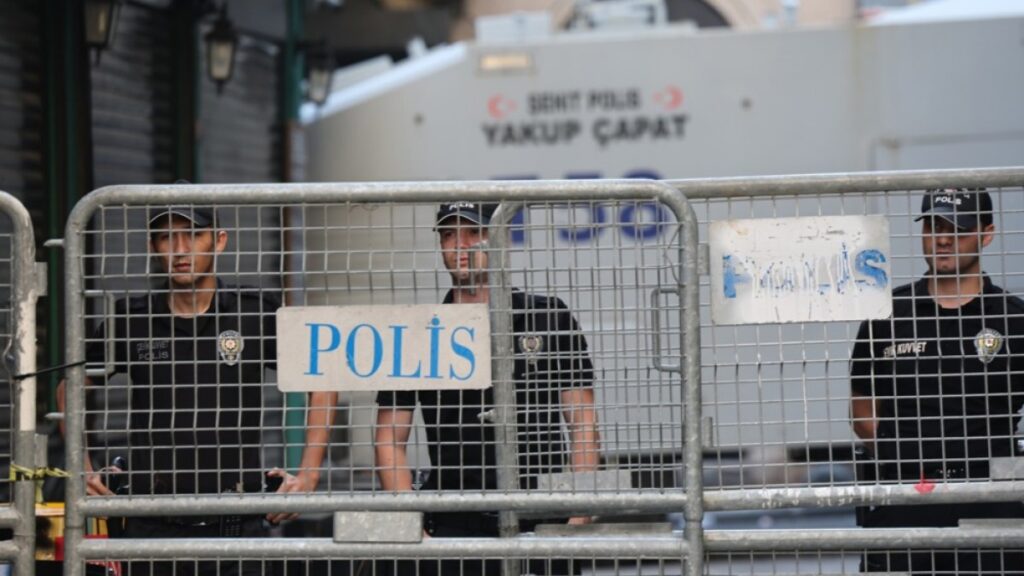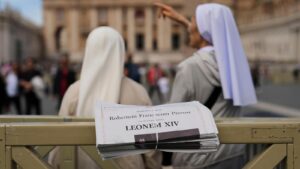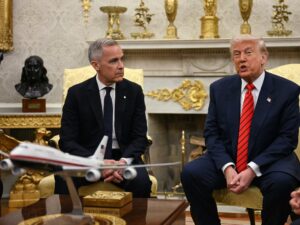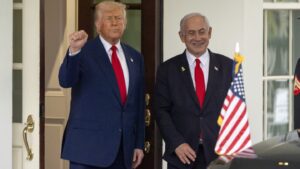
Police in Turkiye have detained four individuals following the publication of a controversial cartoon by the satirical magazine LeMan. Critics allege the cartoon depicted Prophet Muhammad and Prophet Moses shaking hands in a celestial scene, while missiles rained down below, evoking a war-like atmosphere. The magazine, however, denies these claims.
The cartoon, released last week, has sparked significant backlash from both government officials and religious groups within Turkiye. On Tuesday, the Istanbul chief public prosecutor’s office announced a formal investigation into the matter, citing charges of “openly insulting religious values.”
Interior Minister Ali Yerlikaya shared a video on social media platform X, showing the arrest of cartoonist Dogan Pehlevan on Monday. Yerlikaya condemned the cartoon, stating, “I strongly condemn the shameless caricaturing of our Prophet. This is not press freedom. This is not freedom of expression. These provocative acts, which insult our sacred values and deeply hurt Muslim consciences, will not go unpunished.”
Legal Proceedings and Government Response
The Interior Minister revealed that a total of six detention orders had been issued, with two individuals still at large overseas. Among those detained are the magazine’s graphic designer and two senior staff members, in addition to Pehlevan.
Justice Minister Yilmaz Tunc confirmed that the investigation is proceeding under Article 216 of the Turkish Penal Code, which criminalizes “incitement to hatred and enmity.” This legal framework has been a point of contention in Turkiye, often criticized by international observers for its potential to suppress freedom of expression.
Magazine’s Defense and Public Reaction
In response to the uproar, LeMan issued a statement on X, apologizing to readers who felt offended but maintaining that the cartoon had been misinterpreted. The magazine explained that Pehlevan’s intent was to highlight “the suffering of a Muslim man killed in Israeli attacks,” and denied any intention to mock Islam.
“The name Muhammad is among the most common in the Muslim world in honour of the Prophet. The cartoon does not portray him, nor was it intended to disrespect religious beliefs,” the magazine stated, accusing critics of deliberately distorting its message.
LeMan has called on authorities to investigate what it describes as a targeted smear campaign and has advocated for stronger protections of press freedom. Meanwhile, videos circulated online showing protesters marching to LeMan’s office in Istanbul, kicking the building’s doors and chanting slogans, underscoring the heightened tensions surrounding the issue.
Historical Context and Ongoing Debates
The case has reignited long-standing debates in Turkiye regarding the boundaries between free expression and religious sensitivity. This is not the first time such issues have surfaced in the country. Historically, Turkiye has grappled with balancing secularism with its predominantly Muslim population, often resulting in contentious legal and social battles.
Experts note that the current situation reflects broader global tensions where satirical depictions of religious figures have led to significant controversies. The infamous Charlie Hebdo attacks in France serve as a stark reminder of the potential consequences of such cultural clashes.
According to political analyst Mehmet Kaya, “This incident is a litmus test for Turkiye’s commitment to both religious tolerance and freedom of the press. It highlights the delicate balance that must be maintained in a diverse society.”
Implications and Future Outlook
The outcome of this investigation could have far-reaching implications for press freedom and religious expression in Turkiye. As the legal proceedings unfold, the international community will likely be watching closely, given Turkiye’s strategic geopolitical position and its role as a bridge between East and West.
Moving forward, the government’s handling of this case may set a precedent for how similar issues are addressed in the future. It remains to be seen whether Turkiye will adopt a more conciliatory approach or continue to enforce strict measures against perceived insults to religious values.
The situation underscores the ongoing challenges faced by societies worldwide in navigating the complex interplay between freedom of expression and respect for religious beliefs. As Turkiye grapples with these issues, the world watches to see how it will navigate this delicate terrain.






